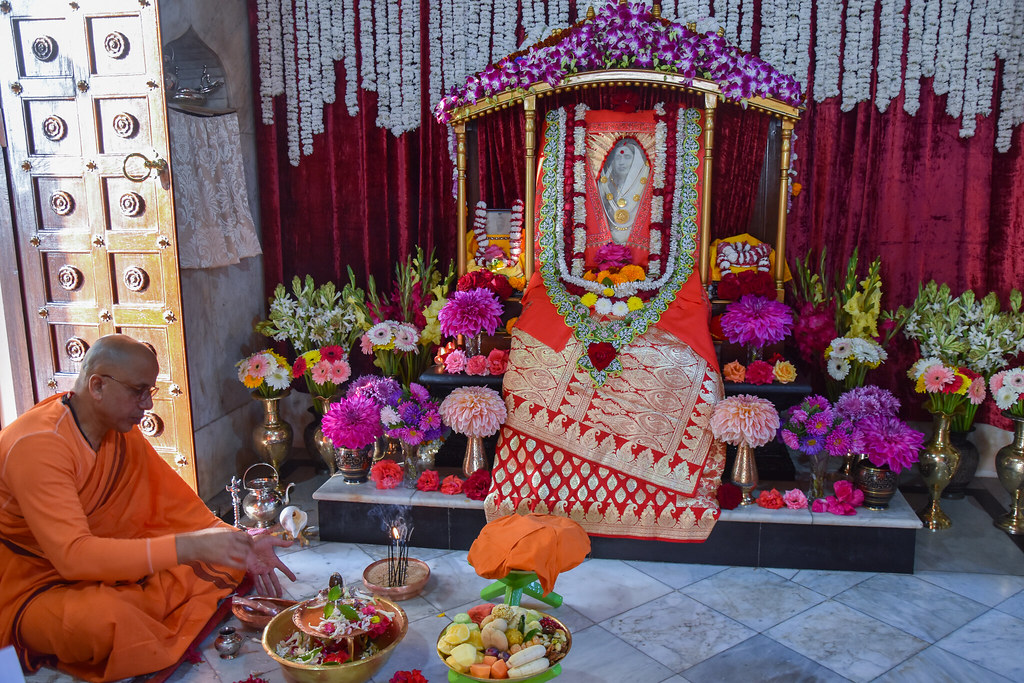BHAGAVAD GEETA: 68 - Swami Advayananda.
==============================================================================
BHAGAVAD GEETA
Chapter - 2
Discourse – 2 (72 Slogas)
“Yoga of the SUPREME SELF”
Sri Veda Vyasaji
==============================================================================
Wednesday 17, Apr 2024 06:30.
2.9 THE PATH OF KAMYA KARMA
(Slogas: 42-44, 3 No.)
Slogam -44: C. The Result? – Addicted Minds
Post - 68.
=============================================================================
Slogam -44: C. The Result? – Addicted Minds
9
Bhoga-aishwarya-prasaktaanaam = For, those who cling to pleasure and lordship,
10
tayaa apahrita chetasaam; = whose minds have become addicted to them –
11
vyavasaayaatmikaa buddhih = none of these are determinate and resolute,
12
samaadhau na vidheeyate. = meditative and tranquil , or studious-minded.
===============================================================================
9-10
Since the fruit of Karmas is impermanent, chasing them leads one to sink
deeper and deeper into Samsara. Birth after birth is thus simply wasted away in pleasure
hunting. The result of such frenzied activity is that the intellect becomes completely
disintegrated. Addiction to pleasure is the ultimate result.
These lines take the level of pleasure to its logical limit, i.e. the addicted state. Any
pleasure, when over-indulged in, makes one addicted to it. Thereafter, the addict seeks
more and more of that pleasure again and again. The pleasure he gets is naturally
impermanent, and so he is drawn repeatedly to it to satisfy his craving. This makes him lose
all sense of decency to obtain the addicted pleasure. He opens himself up to all vices in
order to satisfy his hunger for pleasure. The fences of righteousness begin to fall apart.
The Net Overall Result:
11-12
These two Padas are meant to summarise all the three verses. They reveal the
deplorable state to which the man of desire can sink.
The power of decision, which is the main function of the intellect, gets wasted away
when it is scattered in the direction of endless desires. Intellectual power is depleted. The
main point made here is to contrast the splintered intellect and the decisive intellect.
A mind that is scattered towards numerous desires cannot have the holding power
to stay concentrated in meditation, let alone being absolutely fixed in Samadhi. It is
impossible for it to be so.
Samaadhau: “meditative and tranquil”. The irresolute mind is opposed to Samadhi.
As Acharyaji says, “It has not even stepped into the portals of spirituality.”
The word Samadhi has an interesting derivation. ‘Dhi’ stands for the mind, and ‘sam’
the prefix or Upasarga means ‘that which is done well’. Samadhi would thus mean “the
mind that is standing well” or kept well, well-disciplined or well-trained. Such a mind alone
is suitable for steady contemplation and eventually to enter the state of Samadhi or total
abidance in the Self within.
The Steady Mind Contrasted With the Unsteady Mind:
In effect what the Lord has just done is compared Kamya Karma to Karma Yoga. If
one takes us north, the other will take us south. The two can never go together.
Kamya Karma or actions with desire are the very antithesis of Karma Yoga. Their
goals are opposite to each other. The former aims at pleasure and splinters the intellect; the
latter aims at union with God and integrates the intellect. It aims to fix the mind to one goal – namely God.
Left to itself the mind is sure to remain indisciplined, due to its very restless nature.
If unrestrained by the power of one’s will, it will run towards more and more pleasure
fulfilling desires.
The restless mind can take a long while to become tamed. If it gets drawn to Karma
Yoga, the latter has the power to tame it – even the most restless of them.
The Vedas, being compassionate as our Mother, hold the hope that one day such
people who are given to Kamya Karma will realize how fruitless all their efforts are and then
turn to what She really wants them to follow – the path of dispassion and renunciation.
*****
Next
2.10 THE PRESCRIPTION FOR ARJUNA
(Slogas 45-48, 4 No.)
Continued
=============================================================================
















Comments
Post a Comment